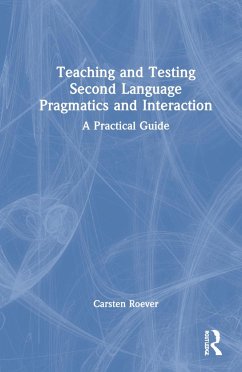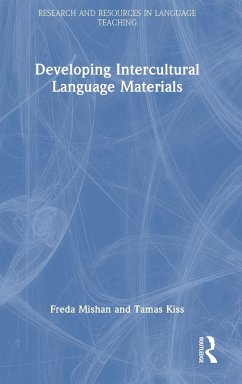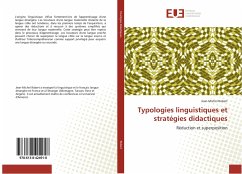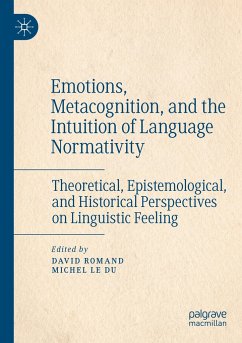
Language typologies and teaching strategies
Reduction and superposition
Versandkostenfrei!
Versandfertig in 6-10 Tagen
27,99 €
inkl. MwSt.

PAYBACK Punkte
14 °P sammeln!
Linguistic origin has a strong influence on the learning of a foreign language. Speakers of a mother tongue that is a long way from the target language tend, in the early stages of acquisition, to make reductions and use simplified systems that come from their mother tongue. This strategy can be repeated in the learning process. Speakers of a closely related language may choose to superimpose the target language on the source language and use intercomprehension as a preferred means of acquiring a foreign or second language.












